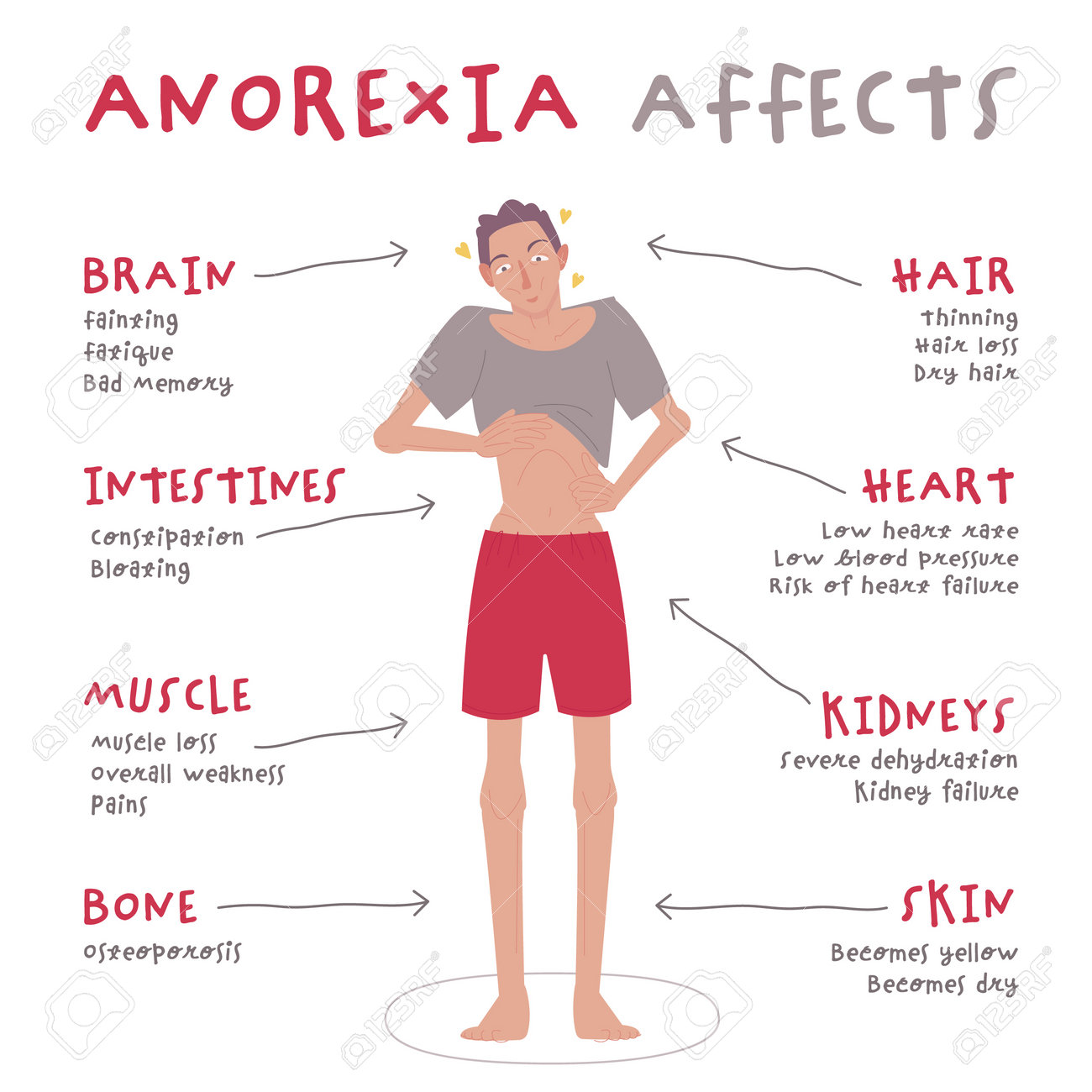Understanding Anorexia Nervosa: A Simple Breakdown
In the intricate landscape of mental health, anorexia nervosa emerges as a shadowy figure, casting its influence on individuals with an intense fear of gaining weight and a distorted perception of their bodies. Beyond a mere dietary concern, anorexia is a complex eating disorder that weaves its way into the lives of those who grapple with a constant quest for control over their weight and shape.
1. The Thin Veil of Anorexia: An Overview
- Anorexia nervosa, commonly known as anorexia, is characterized by abnormally low body weight and an all-consuming fear of gaining weight.
- Individuals with anorexia employ extreme measures to control their weight, often significantly impacting their daily lives.
2. The Battle Beyond Food: Coping with Emotional Turmoil
- Anorexia transcends the realm of food; it’s a perilous attempt to cope with emotional challenges, sometimes posing life-threatening consequences.
- The equation between thinness and self-worth becomes a persistent and unhealthy narrative for those navigating the complexities of anorexia.
3. Symptoms: Unmasking the Physical and Emotional
- Physical signs of anorexia include extreme weight loss, thin appearance, abnormal blood counts, and fatigue.
- Emotional symptoms manifest in preoccupation with food, denial of hunger, and a relentless fear of gaining weight, revealing the multifaceted nature of this disorder.
4. Anorexia in Disguise: The Challenge of Detection
- Detecting anorexia is challenging as the definition of low body weight varies among individuals.
- People with anorexia may cleverly conceal their thinness, eating habits, or physical problems, adding layers to the complexity of diagnosis.
5. Seeking Help: Breaking the Silence
- Treatment for anorexia can be challenging, but with intervention, individuals can rediscover their identities, adopt healthier eating habits, and reverse some of the disorder’s serious complications.
- The journey to recovery involves addressing not only physical symptoms but also the emotional and behavioral aspects intertwined with anorexia.
6. Unveiling the Causes: A Puzzle of Biology, Psychology, and Environment
- The exact cause of anorexia remains elusive, with a likely combination of biological, psychological, and environmental factors.
- Genetic tendencies toward perfectionism, sensitivity, and perseverance may contribute, along with environmental factors emphasizing societal ideals of thinness.

7. Risk Factors: Navigating Vulnerabilities
- Anorexia is more prevalent in girls and women, but societal pressures are increasingly affecting boys and men.
- Transitions, genetics, and dieting are identified as risk factors, and change-related stress can elevate the likelihood of developing anorexia.
8. Complications: The Perilous Fallout of Anorexia
- Anorexia can lead to severe complications, including heart problems, bone loss, and electrolyte imbalances.
- Mental health disorders often accompany anorexia, such as depression, anxiety, and obsessive-compulsive disorders.
9. The Art of Prevention: A Complex Challenge
- Preventing anorexia remains a challenge, but early indicators can be identified during routine medical appointments.
- Open conversations about self-esteem, dieting habits, and appearance satisfaction may pave the way for early intervention and healthier behavior.
As we delve into the enigmatic world of anorexia nervosa, it’s crucial to shed light on the complexities surrounding its detection, treatment, and prevention. By breaking the silence and fostering understanding, we can hope to guide those affected by anorexia toward a path of recovery and well-being.





